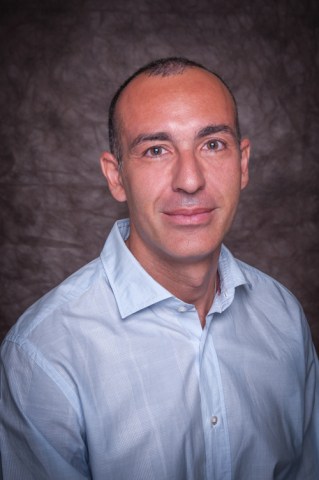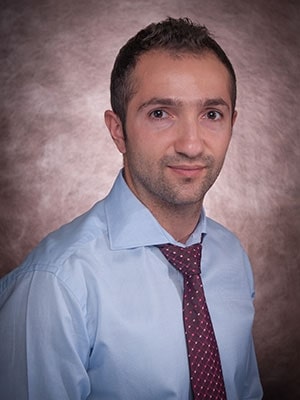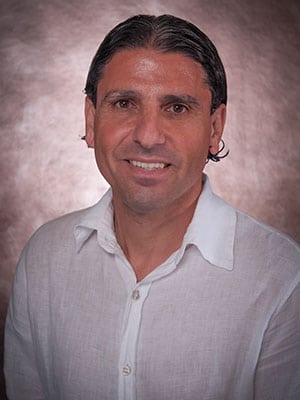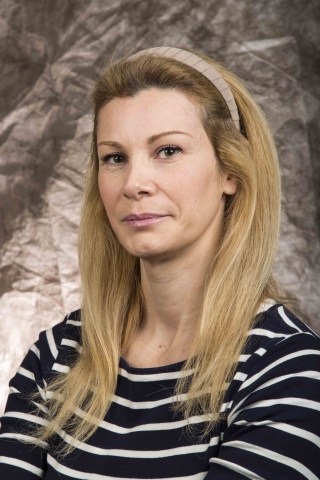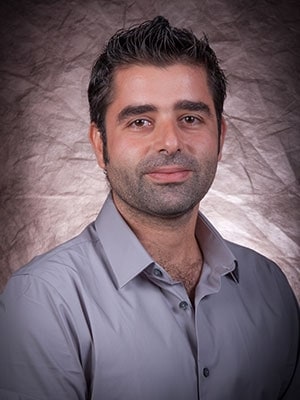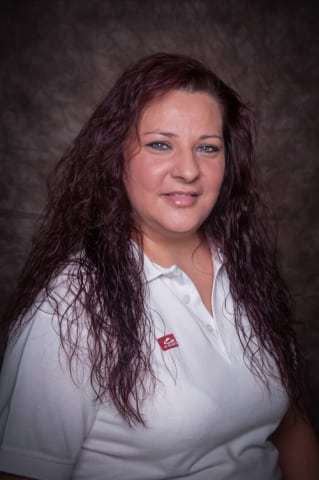Sports Science (BSc, 4 Years)
| Duration | 4 years |
| Qualification Awarded | Sports Science (BSc, 4 years) |
| Level of Qualification | Bachelor Degree (1st Cycle) |
| Language of Instruction | Greek / English |
| Mode of Study | Full-time and Part-time |
| Minimum ECTS Credits | 240 |
Request Information
Profile of the Programme
Aims
The aim of the program is to provide students with an in-depth knowledge and understanding of the scientific principles governing sports performance, physical education, exercise and health and physical activity.
Objectives
The main objectives of the programme are to:
- Impart knowledge and develop the capacities of students through state-of-the-art Higher Education in the area of Sports Science including Physical Education.
- Provide students with an in-depth knowledge and understanding of the scientific principles governing exercise science, sports pedagogy, physical activity and health, recreation and sports performance.
- Enable graduates to become reflective teachers who will provide educationally valuable learning experiences for children in elementary and secondary level schools as well as reflective sports educators for children, adolescents and adults
- Enable graduates to develop relevant competences and a strong basis for future specialisation and to build the basis for postgraduate studies in exercise sciences and physical education.
- Enable graduates to develop life-long learning skills in exercise science and physical education and to cultivate life-long sports participation culture.
- Encourage leadership in the area of exercise science and physical education and inspire independent analytical and critical judgment
- Promote sports science and physical education research*
- Encourage students to choose specialization modules upon their preference
Through the Physical Education (PE) courses students will be able to specifically:
- plan, teach and assess lessons and programmes of work in PE sectors
- use a range of teaching and learning strategies addressing students of all ability levels to:
- understand the knowledge, concepts and skills which underlie PE;
- apply principles of differentiated learning and progression to lesson planning;
- continually develop their professional capability through ongoing critical analysis of their practice.
Students who will choose Sports Coaching Module will be able to:
- understand the roles and responsibilities of the coach and the fitness coach and in general the role of the whole coaching team
- develop athletes and improve their overall performance
- effectively condition athletes by providing concepts and principles that can assist in generating possibilities and identifying actions for the individual or the team
- ensure a safe coaching environment and deal safely with injuries
- work with exercise physiologist and sports physicians/medicine and other relevant personnel in order to plan, implement and monitor training and fitness development of the athletes
Students who will choose Fitness Development in Gyms & Exercise Centres Module will be able to:
- understand in depth the roles and responsibilities of a fitness instructor in a gym and/or in a health and sports canters
- be able to design, execute and monitor fitness development and physical activity programmes for individuals and for groups
- develop strength and conditioning parameters of individuals and/or groups at all levels based on their needs (e.g. recreational, health and exercise performance purposes)
- be able to manage and lead a fitness development centre and/or gyms
- be able to improve the overall fitness and health of an individual through exercise effectively by providing training concepts and principles that can assist in improving the fitness and health status of individuals and/or groups
- become effective and inspiring personal trainers
Students who will choose Exercise, Fitness & Health Module will be able to
- Recognize the important role and appreciate the general health benefits of physical activity and exercise for maintaining or improving physical, social and psychological health of persons of different age groups.
- Recognize the important role of physical activity and exercise in the prevention and treatment of chronic diseases.
- Learn to design exercise programs based on the needs and goals of the individual aiming to improve health related parameters.
- Learn to design exercise programs for the improvement of physical performance parameters such as body composition, cardiovascular endurance, muscular strength, and flexibility; based on the needs and goals of the individual
- Design specific and appropriate exercise and physical activity programs for the most common chronic diseases
- Recognize how physical activity and exercise could improve the quality of life in healthy and diseased individuals.
- Assess the functional capacity of both healthy and diseased populations
*: Regarding Sports Science and PE postgraduate studies: Upon graduation, our students may have direct access to further postgraduate (MSc, MA, MRes, MPhil) studies, such as in sports science and physical education in general or specifically in sports physiology, sports and exercise nutrition, fitness and health, clinical exercise physiology, strength and conditioning, sports coaching, sports psychology and athletic training.
Career Prospects
Sports Science is a field which is characterized by continuous changes and challenges. It is among the most rapidly growing areas of the sports and athletics industry in both nationally and internationally. Due to the highly competitive nature of the field and the rapidly evolving ‘character’ there is a requirement for competent graduates. On successful completion of the program graduates will be able to provide leadership and expertise and gain entry into a wide range of careers in the world of sport science, physical education and fitness and leisure centres, as well as, in other areas related to sports, exercise and health.
Potential employment opportunities include:
- Physical education teachers in elementary and secondary schools
- Fitness instructors in sports and athletics teams and clubs at all levels
- Fitness instructors in gyms, fitness and well-being centres
- Sports science consultants with sports agencies or government bodies as pertaining to health, sports, exercise and fitness
- Health and fitness advisors (for sports and exercise prescription)
- Management of sport and fitness centres and corporate fitness programmes
- Sports science laboratory assistants
- Research for sport and exercise manufacturing and other commercial industries (e.g. equipment, clothing, footwear, food, drink etc)
Access to Further Studies
Graduates of the programme can be accepted into Second Cycle degrees (Master’s Degree)
Academic Admission
The minimum admission requirement to an undergraduate programme of study is a recognized High School Leaving Certificate (HSLC) or equivalent internationally recognized qualification(s). Students with a lower HSLC grade than 7.5/10 or 15/20 or equivalent depending on the grading system of the country issuing the HSLC are provided with extra academic guidance and monitoring during the first year of their studies.
Course assessment usually comprises of a comprehensive final exam and continuous assessment. Continuous assessment can include amongst others, mid-terms, projects and class participation.
Letter grades are calculated based on the weight of the final exam and the continuous assessment and the actual numerical marks obtained in these two assessment components. Based on the course grades the student’s semester grade point average (GPA) and cumulative point average (CPA) are calculated.
The student must complete 240 ECTS and all programme requirements. A minimum cumulative grade point average (CPA) of 2.0 is required. Thus, although a ‘D-‘ is a PASS grade, in order to achieve a CPA of 2.0 an average grade of ‘C’ is required.
Upon successful completion of this program, the students should be able to:
- Develop conceptual, operational, technical and practical skills that are required for achieving a successful career in the sports science field including physical education at local, national or international level.
- Work independently and as part of a team to examine theoretical and practical issues in sports, exercise science and physical education and become self-directed in the area of exercise science and physical education.
- Display critical understanding when conducting basic research in sport science and physical education as well as to facilitate the suitable background for postgraduate studies in sports and exercise science and physical education.
- Enhance and develop leadership and mastery of sport science and physical education knowledge using current, practical and scientific models that will in turn promote interest in life-long learning.
- Use informatics principles and relevant sports science and PE technology tools for collecting and analysing data for assessment and evaluate data to use in decision-making relevant to the graduates’ expertise.
Section: A Κύρια Υποχρεωτικά Μαθήματα
ECTS: Min. 162 Max. 162
| Course ID | Course Title | ECTS Credits |
|---|---|---|
| SPSC-105G | Ανατομία του Ανθρώπου | 6 |
| SPSC-106G | Φυσιολογία του Ανθρώπου | 6 |
| SPSC-120G | Διδακτική Ενόργανης Γυμναστικής | 6 |
| SPSC-130G | Διδακτική Κολύμβησης | 6 |
| SPSC-140G | Αρχές Διδασκαλίας και Παιδαγωγικής στη Φυσική Αγωγή | 6 |
| SPSC-157G | Διδακτική Ποδοσφαίρου | 6 |
| SPSC-158G | Διδακτική Καλαθοσφαίρισης | 6 |
| SPSC-160G | Ιστορία και Φιλοσοφία του Αθλητισμού | 6 |
| SPSC-200G | Ψυχολογία του Αθλητισμού | 6 |
| SPSC-210G | Εφαρμοσμένη Σχολική Παιδαγωγική Γυμναστική | 6 |
| SPSC-220G | Κοινωνιολογία του Αθλητισμού | 6 |
| SPSC-230G | Κινητικός Έλεγχος και Κινητική Μάθηση | 6 |
| SPSC-240G | Βιοχημεία της Άσκησης | 6 |
| SPSC-250G | Αθλητιατρική | 6 |
| SPSC-257G | Διδακτική Χειροσφαίρισης | 6 |
| SPSC-258G | Διδακτική Πετοσφαίρισης | 6 |
| SPSC-270G | Στίβος Ι (Δρόμοι και Εμπόδια) | 6 |
| SPSC-275G | Στίβος ΙΙ (Άλματα και Ρίψεις) | 6 |
| SPSC-300G | Μέθοδοι Έρευνας και Στατιστικής στον Αθλητισμό | 6 |
| SPSC-306G | Μέθοδοι Διδασκαλίας της Φυσικής Αγωγής στα Σχολεία | 6 |
| SPSC-310G | Βιοκινητική και Κινησιολογία του Αθλητισμού | 6 |
| SPSC-315G | Φυσιολογία της Άσκησης | 6 |
| SPSC-316G | Εργομετρία | 6 |
| SPSC-350G | Διδακτική Ελληνικών Παραδοσιακών Χορών | 6 |
| SPSC-360G | Βασικές Αρχές Προπονητικής | 6 |
| SPSC-403G | Πρακτική Άσκηση στη Φυσική Αγωγή | 6 |
| SPSC-404G | Ενσωμάτωση Μαθητών με Ειδικές Ανάγκες στη Σχολική Φυσική Αγωγή | 6 |
Section: B Κύρια Επιλεγόμενα Μαθήματα
ECTS: Min. 42 Max. 60
Notes:
Τα επιλεγόμενα SPSC-410G, SPSC-415G, SPSC-420G, SPCS-421G, SPSC-422G, SPSC-430G οδηγούν στη Θεματική Ενότητα της Προπονητικής (σε ένα από τα πιο κάτω αθλήματα: Ποδόσφαιρο, Καλαθοσφαίριση, Πετοσφαίριση, Χειροσφαίριση, Στίβος, Κολύμβηση, Ενόργανη Γυμναστική, Αντισφαίριση).
Τα επιλεγόμενα SPSC-110G, SPSC-281G, SPSC-282G, SPSC-285G, SPSC-286G, SPSC-380G οδηγούν στην Θεματική Ενότητα: Ανάπτυξη Φυσικής Κατάστασης σε Γυμναστήρια και Κέντρα Άσκησης.
Τα επιλεγόμενα SPSC-110G, SPSC-111G, SPSC-117G, SPSC-281G, SPSC-330G, SPSC-340G οδηγούν στην Θεματική Ενότητα Άσκηση, Ευρωστία και Υγεία.
| Course ID | Course Title | ECTS Credits |
|---|---|---|
| BIOL-110G | Στοιχεία Βιολογίας | 6 |
| CHEM-104G | Εισαγωγή στην Οργανική και Βιολογική Χημεία | 6 |
| SPRT-302G | Ανάπτυξη – Διαχείριση Αθλητισμού | 6 |
| SPRT-303G | Προώθηση του Αθλητισμού | 6 |
| SPRT-304G | Αθλητικό Δίκαιο | 6 |
| SPRT-402G | Διαχείριση Αθλητικών Εγκαταστάσεων | 6 |
| SPRT-403G | Τεχνολογία του Αθλητισμού | 6 |
| SPRT-404G | Ανάλυση της Βιομηχανίας του Αθλητισμού | 6 |
| SPSC-110G | Φυσική Δραστηριότητα και Προαγωγή της Υγείας | 6 |
| SPSC-111G | Γήρανση, Φύλο και Αθλητισμός | 6 |
| SPSC-113G | Φαρμακοδιέγερση και Ηθική στον Αθλητισμό | 6 |
| SPSC-114G | Διδακτική Αντισφαίρισης (Τένις) | 6 |
| SPSC-115G | Διδακτική Επιτραπέζιας Αντισφαίρισης | 6 |
| SPSC-117G | Ορθοπεδική/Ορθοσωμική Γυμναστική | 6 |
| SPSC-118G | Διδακτική Υπαίθριων Δραστηριοτήτων | 6 |
| SPSC-119G | Διδακτική Τζούντο | 6 |
| SPSC-281G | Προπόνηση με Αντιστάσεις | 6 |
| SPSC-282G | Προχωρημένες Μέθοδοι Προπόνησης με Αντιστάσεις | 6 |
| SPSC-284G | Εναλλακτικές Μέθοδοι Άσκησης | 6 |
| SPSC-285G | Διδακτική Αεροβικής Γυμναστικής | 6 |
| SPSC-286G | Προχωρημένες Μέθοδοι Αεροβικής Γυμναστικής | 6 |
| SPSC-330G | Διατροφή της Άσκησης και του Αθλητισμού | 6 |
| SPSC-340G | Άσκηση και Χρόνιες Παθήσεις | 6 |
| SPSC-380G | Διαχείριση Γυμναστηρίου και Αθλητικών Κέντρων Υγείας | 6 |
| SPSC-390G | Αθλητική Φυσικοθεραπεία | 6 |
| SPSC-410G | Σχεδιασμός και Ανάλυση της Αθλητικής Απόδοσης | 6 |
| SPSC-415G | Αποτελεσματικότητα στην Αθλητική Προπονητική | 6 |
| SPSC-420G | Εφαρμοσμένη Αθλητική Ψυχολογία | 6 |
| SPSC-421G | Προχωρημένη Προπονητική της Φυσικής Κατάστασης | 6 |
| SPSC-422G | Πρακτική Άσκηση στην Προπονητική | 6 |
| SPSC-430G | Αθλητική Απόδοση στα Παιδιά και Έφηβους Αθλητές | 6 |
| SPSC-490G | Τελική Πτυχιακή Μελέτη | 12 |
Section: C Γλωσσική Έκφραση
ECTS: Min. 6 Max. 18
Placement in English courses is done on the basis of a Placement Test or tests such as TOEFL or GCE
| Course ID | Course Title | ECTS Credits |
|---|---|---|
| BENG-100 | College English | 6 |
| ENGL-100 | Basic Writing | 6 |
| ENGL-101 | English Composition | 6 |
| ESP-100S | English for Sports Science I | 6 |
| ESP-101S | English for Sports Science II | 6 |
Section: D Μαθήματα Γενικής Επιλογής
ECTS: Min. 6 Max. 24
| Course ID | Course Title | ECTS Credits |
|---|---|---|
| ANTH-105A | Πολιτισμική Ανθρωπολογία | 6 |
| ART-110G | Εισαγωγή στις Εικαστικές Τέχνες | 6 |
| ART-111G | Ελληνικός Πολιτισμός | 6 |
| BADM-121G | Επιχειρησιακή Ηθική | 6 |
| COMP-150 | Microcomputer Applications | 6 |
| COMP-151G | Βασικές Αρχές Ηλεκτρονικών Υπολογιστών | 6 |
| MATH-105G | Στοιχειώδης Άλγεβρα | 6 |
| MATH-108G | Μαθηματικά και Εφαρμοσμένος Λογισμός | 6 |
| MATH-221G | Στατιστική Ι | 6 |
| MATH-321G | Στατιστική ΙΙ | 6 |
| PHIL-101G | Εισαγωγή στη Φιλοσοφία | 6 |
| PHIL-120G | Ηθική | 6 |
| PSY-110G | Γενική Ψυχολογία I | 6 |
| PSY-111G | Γενική Ψυχολογία II | 6 |
| PSY-210G | Κοινωνική Ψυχολογία | 6 |
| SOC-101G | Αρχές Κοινωνιολογίας | 6 |
Semester 1
| Course ID | Course Title | ECTS Credits |
|---|---|---|
| SPSC-105G | Ανατομία του Ανθρώπου | 6 |
| SPSC-130G | Διδακτική Κολύμβησης | 6 |
| SPSC-140G | Αρχές Διδασκαλίας και Παιδαγωγικής στη Φυσική Αγωγή | 6 |
| SPSC-157G | Διδακτική Ποδοσφαίρου | 6 |
| SPSC-114G | Διδακτική Αντισφαίρισης (Τένις) | 6 |
Semester 2
| Course ID | Course Title | ECTS Credits |
|---|---|---|
| SPSC-106G | Φυσιολογία του Ανθρώπου | 6 |
| SPSC-120G | Διδακτική Ενόργανης Γυμναστικής | 6 |
| SPSC-158G | Διδακτική Καλαθοσφαίρισης | 6 |
| SPSC-160G | Ιστορία και Φιλοσοφία του Αθλητισμού | 6 |
| COMP-150 | Microcomputer Applications | 6 |
Semester 3
| Course ID | Course Title | ECTS Credits |
|---|---|---|
| SPSC-200G | Ψυχολογία του Αθλητισμού | 6 |
| SPSC-230G | Κινητικός Έλεγχος και Κινητική Μάθηση | 6 |
| SPSC-240G | Βιοχημεία της Άσκησης | 6 |
| SPSC-257G | Διδακτική Χειροσφαίρισης | 6 |
| SPSC-270G | Στίβος Ι (Δρόμοι και Εμπόδια) | 6 |
Semester 4
| Course ID | Course Title | ECTS Credits |
|---|---|---|
| SPSC-210G | Εφαρμοσμένη Σχολική Παιδαγωγική Γυμναστική | 6 |
| SPSC-220G | Κοινωνιολογία του Αθλητισμού | 6 |
| SPSC-258G | Διδακτική Πετοσφαίρισης | 6 |
| SPSC-250G | Αθλητιατρική | 6 |
| SPSC-275G | Στίβος ΙΙ (Άλματα και Ρίψεις) | 6 |
Semester 5
| Course ID | Course Title | ECTS Credits |
|---|---|---|
| SPSC-281G | Προπόνηση με Αντιστάσεις | 6 |
| SPSC-306G | Μέθοδοι Διδασκαλίας της Φυσικής Αγωγής στα Σχολεία | 6 |
| SPSC-315G | Φυσιολογία της Άσκησης | 6 |
| SPSC-350G | Διδακτική Ελληνικών Παραδοσιακών Χορών | 6 |
| SPSC-360G | Βασικές Αρχές Προπονητικής | 6 |
Semester 6
| Course ID | Course Title | ECTS Credits |
|---|---|---|
| SPSC-282G | Προχωρημένες Μέθοδοι Προπόνησης με Αντιστάσεις | 6 |
| SPSC-300G | Μέθοδοι Έρευνας και Στατιστικής στον Αθλητισμό | 6 |
| SPSC-310G | Βιοκινητική και Κινησιολογία του Αθλητισμού | 6 |
| SPSC-316G | Εργομετρία | 6 |
| ESP-100S | English for Sports Science I | 6 |
Semester 7
| Course ID | Course Title | ECTS Credits |
|---|---|---|
| SPSC-403G | Πρακτική Άσκηση στη Φυσική Αγωγή | 6 |
| SPSC-330G | Διατροφή της Άσκησης και του Αθλητισμού | 6 |
| SPSC-340G | Άσκηση και Χρόνιες Παθήσεις | 6 |
| SPSC-490G | Τελική Πτυχιακή Μελέτη | 12 |
Semester 8
| Course ID | Course Title | ECTS Credits |
|---|---|---|
| SPSC-404G | Ενσωμάτωση Μαθητών με Ειδικές Ανάγκες στη Σχολική Φυσική Αγωγή | 6 |
| SPSC-110G | Φυσική Δραστηριότητα και Προαγωγή της Υγείας | 6 |
| SPSC-113G | Φαρμακοδιέγερση και Ηθική στον Αθλητισμό | 6 |
| SPSC-390G | Αθλητική Φυσικοθεραπεία | 6 |
| SPSC-420G | Εφαρμοσμένη Αθλητική Ψυχολογία | 6 |
